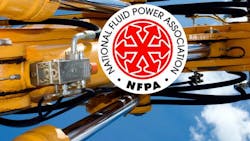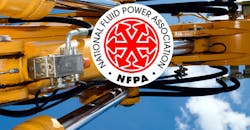Download a PDF of this article.
Shortly after being hired as associate editor on Hydraulics & Pneumatics in 1987, I was elected to learn about electronics—primarily because I was the low man on the totem pole. (Actually, I have since learned that figures in a totem pole are least important at the top; the most prestigious are at the bottom.) At the time, electronic control of fluid power was well past its infancy, but digital control was creeping in, so the timing was pretty good.
Courses in electronics were requirements of my BS degree from Franklin University, so I knew enough about electronics that I found mechanics much more interesting and understandable. I took a a continuing education course at the University of Wisconsin and one at the Milwaukee School of Engineering on digital control. Still, like many of us, I found learning about electronics difficult because it can’t be visualized like fluid and mechanical components.
Then I hit pay dirt. The National Fluid Power Association announced it was forming a technical committee, T2.30, to begin publishing selection guides for electronic components used in fluid power. I still didn’t know much about industrial electronics, but I couldn’t have found a better group of people to learn from.
The first task of the committee was to develop a guide for the selection of pressure transducers used in fluid power. Some of the fellow committee members were from companies that make transducers, some were from companies that make fluid power components, and some were from manufacturers that use both.
I was rubbing elbows with experts in the field. Discussions came up, and committee members were more than happy to help educate me in the technology. Sometimes disagreements arose, which also proved valuable.
Eventually, our subcommittee published a selection guide for pressure transducers and another for linear displacement transducers, and I am proud to have served on both committees and of the wealth of knowledge I gained.
NFPA no longer writes its own standards. Instead, they participate in ISO TC 131, an international technical committee focused on standardization of fluid power systems and components. Denise Rockhill, international standards manager at NFPA, says 15 different countries participate in (and seven more observe) TC 131, which currently has more than 140 members from more than 80 different companies.
About the Author
Alan Hitchcox Blog
Editor in Chief
Alan joined Hydraulics & Pneumatics in 1987 with experience as a technical magazine editor and in industrial sales. He graduated with a BS in engineering technology from Franklin University and has also worked as a mechanic and service coordinator. He has taken technical courses in fluid power and electronic and digital control at the Milwaukee School of Engineering and the University of Wisconsin and has served on numerous industry committees.

Leaders relevant to this article:


